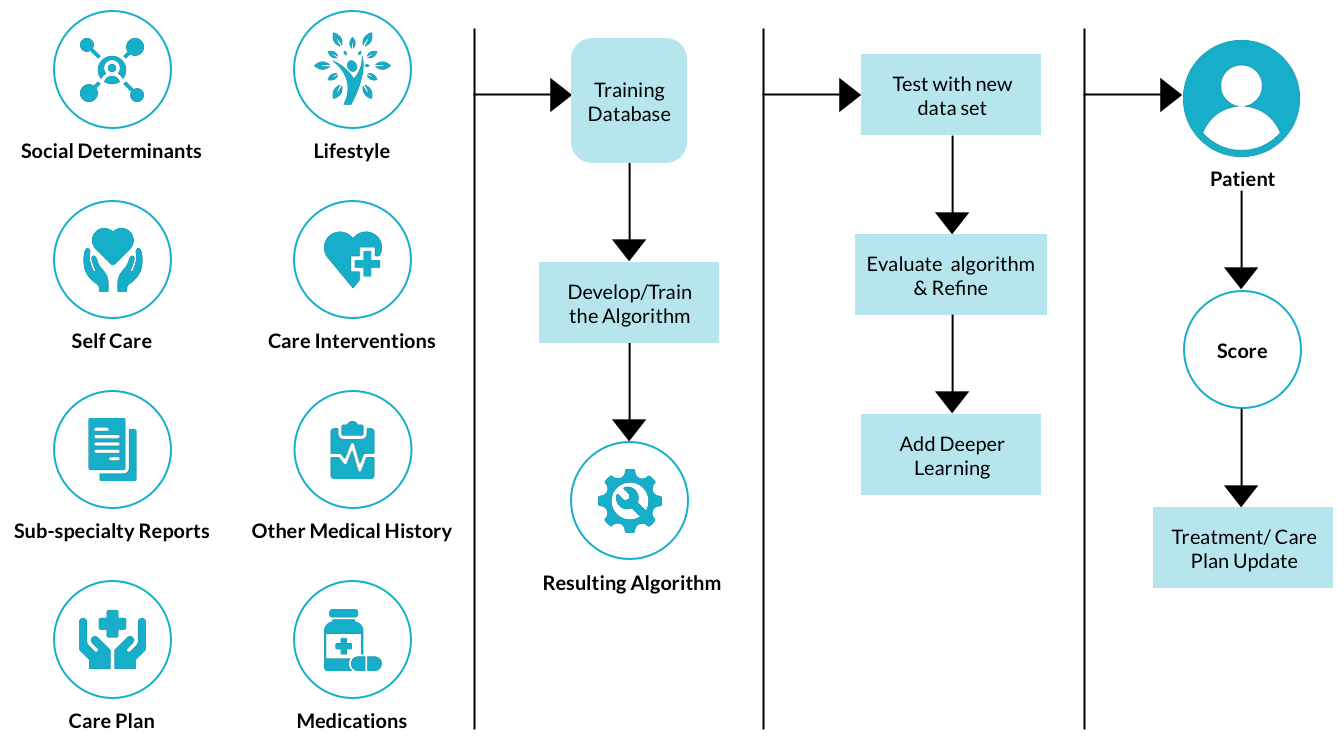Care Management/ Aging at Home
We understand that our daily activities, self-management and education of health and the daily coordination of care are all related to ultimately our health outcomes. Sensor technologies including biometric devices, activity sensors, fall detectors, sleep quality measurements etc. can further assist in understanding health metrics. But making senses of all this data can be overwhelming. AI can assist in creating personalized plan for individual patients and seniors assessing the stage of disease, their awareness of self-care, medication adherence, social determinants of health and lifestyles. Furthermore, AI can monitor for “alert” patterns and without any compromise in personal privacy, share those with a care team member or family member to ensure that a senior with a chronic condition or living alone can be attended to at all times.

